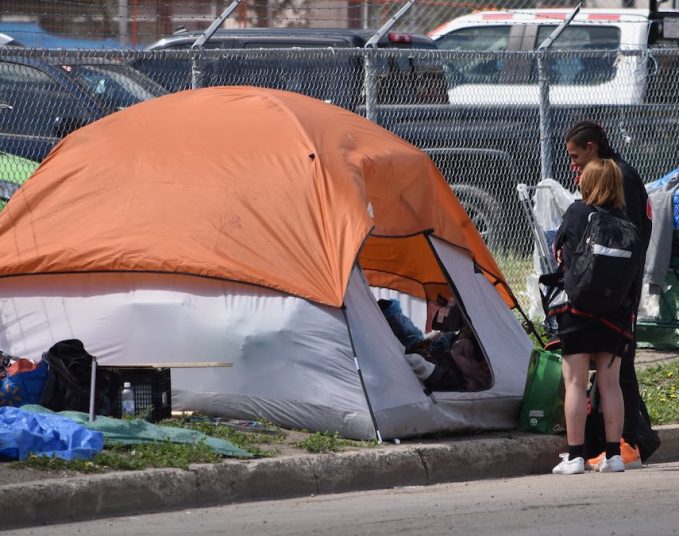It was just another grip-and-grin press conference. Governments of all sorts have a lot of these, where some sort of funding is announced, some handshakes are exchanged in front of the camera, and there may be a prop or two.
Earlier this week, two provincial government ministers — Searle Turton (Children and Family Services) and Joseph Schow (Tourism and Sport) trotted out for a photo op at a Calgary rec centre. Handshakes were exchanged. Backs were slapped. Why? To announce that the Every Kid Can Play Program had officially launched.
The program sets aside $3 million this year so families in need can get financial aid for their kids’ sport registrations.
The media members who bothered to pay attention were really there so they could ask Schow about the status of the Calgary-Edmonton Commonwealth Games bid, in the wake of Victoria, Australia’s announcement it was cancelling the 2026 edition due to cost overruns. All of the questions asked of Schow were about the Commonwealth Games, and there was not one shred of interest in the Every Kid Can Play Program.
And that’s too bad. Because, without grassroots sports programming, what’s the point of bidding for the big events?
We know that sports organizations across Canada are in the midst of a perfect storm. Costs are rising, and registrations are falling. And, one of the reasons registration numbers are falling is because of those rising costs.
Let’s look at the two big team sports in Canada, soccer and hockey.
In its recently released 2022 Annual Report, Canada Soccer announced that there were 689,938 registered players across the country. Compare that to 818,940 in 2016. Yes, COVID had an influence; but before the virus spread across the planet, we were already seeing a downward trend in registrations. Despite the whole “soccer is accessible” mantra, the truth is participation in the sport has been shrinking for the better part of a decade.
In 2014-15, there were 721,504 registered hockey players in Canada. By 2021-22, that had shrunk to 513,674.
So, what does the Every Kid Can Play Program do? Here’s the nitty gritty, with the political doublespeak removed: The province will help qualified families with up to $350 to help offset the cost of registration fees.
That’s about the cost of a decent hockey stick or a baseball bat. And, outside of basic house leagues, it’s not going to come close to covering the cost of registration, either.
It’s a well-intentioned program. Sports are becoming more and more unattainable to kids with each and every passing year. But it’s hard to predict if such a small stipend will help families in need.
And it’s a thorny issue to talk about; sports organizations need all the help they can get, so it’s not like anyone is going to criticize a program called Every Kid Can Play. I contacted Baseball Alberta, Hockey Edmonton and Alberta Soccer to ask them what they thought the program might do when it comes to participation in their leagues, and I received zero response.
But, this is the hard truth. There are lots of costs parents have to consider when placing their kids in sports: There isn’t just registration fees. There is gear — and even though there are equipment exchanges and used equipment sellers, it’s still a pricey proposition for many sports. There’s the cost of bringing kids to games and practices, from gasoline to taking time off work (we can’t assume all parents are nine-to-five, Monday to Friday people). There are tournament fees. There is travel, for kids on rep teams. That means hotels, higher fuel costs and more time off work. There are the obligations to buy tickets for your kids’ teams raffles and fundraisers.
My wife and I are fortunate, we can afford to place our children in competitive sports leagues. It easily costs us more than $10,000 a year.
I think they are very important for kids, not just because of the much-ballyhooed benefits of teamwork and working to make oneself better, but because kids have to be better equipped to deal with failure and disappointment, too. There is winning and there is losing, and both offer invaluable life lessons.
The benefit is worth more than $350 per year, and it’s an issue that goes a lot deeper than a grip-and-grin photo op that most of us ignored.
Savvy AF. Blunt AF. Edmonton AF.




